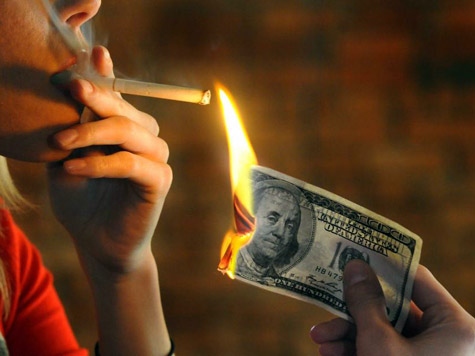Could a global tobacco tax be on the cards if tobacco tax proponents get their way at a key international organization’s meeting this week?
Anti-tax advocates fear that the answer to that question may be “yes” as a conference of government representatives of 176 countries gets underway in Seoul, South Korea.
Known as “COP5,” the meeting will involve representatives of signatories to the Framework Convention on Tobacco Control (FCTC), and will focus on methods of reducing tobacco consumption.
Foremost among those has been a World Health Organization (WHO) proposal to apply a 70 percent excise tax on cigarettes sold within signatory countries, and the earmarking of tobacco tax funds to fund the WHO directly.
Critics charge that if implemented, the proposal could undermine countries’ sovereignty, while reducing WHO accountability and implementing policy that risks provoking trade in illicit cigarettes.
According to David Williams, President of the Taxpayer Protection Alliance, “The proposal has major implications for the preservation of member-state sovereignty, the ability of the WHO to be held accountable, and the extent to which smoking is actually reduced.”
As evidence of the failure of higher cigarette taxes to combat smoking while stimulating illicit trade, Williams points to a study by a Concamin, a Mexican industrial group, on the after-effects of Mexico’s 2011 cigarette tax increase. “According to that study,” writes Williams, “illegal, untaxed cigarettes now account for about 17 percent of cigarettes sold in Mexico.”
The WHO disagrees, and has recently been pushing for China, the Philippines, and a variety of other Asian countries to raise their cigarette taxes. The Philippines, with WHO support, is currently considering hiking its cigarette tax by as much as 1000 percent.
In September, a WHO spokesperson told the Washington Free Beacon that “The increase of the price of tobacco by national authorities through higher excise taxes is the single most effective way to encourage tobacco users to quit and prevent children from starting to smoke,” and confirmed that at COP5, “price and tax measures to reduce the demand for tobacco” would be under discussion, while noting that the outcome of that discussion could not be predicted.
COP5 will run through November 17.

COMMENTS
Please let us know if you're having issues with commenting.